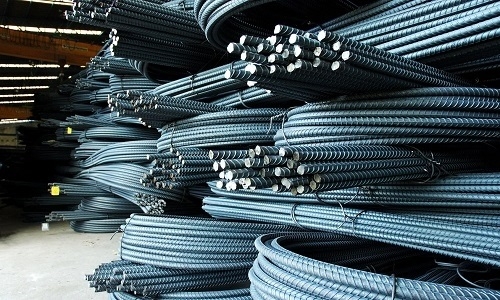‘Steel TMT bar prices to remain stable in coming months’
23 Jan 2024 08:13:02

Business Reporter
Locally produced or secondary steel TMT bar prices are expected to remain stable in the coming months on account of weak demand and flood of imports in the domestic market. Usually it is witnessed that the locally produced steel TMT bar prices rise by 10 per cent from the month of December every year with the pick-up in economic activity and demand. But, this year the scenario is totally different as prices have not budged from the past few months.
“The steel TMT bar prices are expected to remain under pressure for a few more months due to weaker demand and bulk imports from China and other Asian countries,” said Rajesh Sarda, President of Steel and Hardware Chamber of Vidarbha and Director of Ramsons Group while speaking to The Hitavada.
Sarda further said that the some of the manufacturers were confused of the situation. “To face this challenging situation, we have cut production by 30 per cent,” he pointed out.
The locally produced TMT bar prices for 8 mm are being quoted at Rs 46,500 per tonne, 10 mm at Rs 45,500 per tonne and from 12 mm to 25 mm at Rs 45,000 per tonne (excluding 18 per cent GST).
There is weak demand from wholesalers, builders and contractors. The market situation has become challenging as the wholesalers and builders are facing cash crunch and are delaying payments for the steel supplied to them. Earlier, there would be huge difference of Rs 7,000 per tonne to Rs 8,000 per tonne between primary and secondary steel producers. At present, this difference in prices has narrowed down to Rs 4,000 per tonne to Rs 5,000 per tonne.
In the current situation, steel TMT bar prices are witnessing steep drop in demand in the secondary market as they have crashed by Rs 5,000 per tonne (excluding GST) in the past four months.
Although the Government is spending thousands of crores on infrastructure projects like roads, highways, expressways and bridges the material bought from primary steel producers like Tata Steel, SAIL, Jindal Steel etc., and are not sourced from secondary steel producers.
There are two integrated steel producers and about 20 rolling mills in Nagpur. These units only supply 5 per cent to 10 per cent of their products in Nagpur market. “We are unable to compete with steel manufacturers based in Chhattisgarh as their products are cheaper and near Nagpur,” he said.
The Government should take steps to revive the secondary steel industry which is suffering due to weak demand and high electricity rates in Nagpur.
Sarda feels that the lowering of interest rates and Goods and Services Tax (GST) on steel products would stimulate demand and revive market.